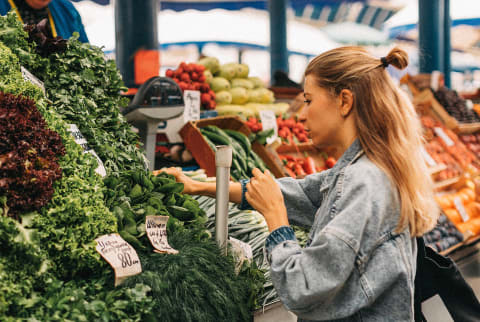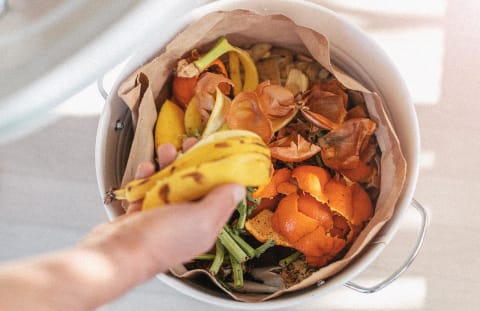Instead of feeling disheartened, let’s use this as a source of empowerment. It means that every single day we have at least three opportunities to vote for the planet: breakfast, lunch, and dinner. The lesson? Consuming fewer animal products is one of the fastest and simplest ways to reduce your climate footprint every single day. And believe us when we say it’s more doable than you think. One simple and empowering way to think about it is to consider each of your meals as a vote. Each time you choose a plant-based meal, you cast a vote for the planet. If you’re feeling a little lost when it comes to what to eat, start by looking at the animal products in the meals you have on rotation and look around for a plant-based alternative. We’re living in the golden age of plant-based eating, with an abundance of clever products like plant-based cheeses, milk alternatives, and meat substitutes. One of our favorite new kids on the plant-based block is JUST Egg: A 100% plant-based egg alternative that scrambles just like the eggs we eat from chickens. This simple swap can make a huge difference to your sustainable footprint. Given the number of crops needed to feed chickens, it takes 51 gallons of water to produce a single egg. Since JUST Egg is made directly from one of the most water-efficient summer crops—the mung bean—it uses 98% less water. It also uses 93% less CO2e and 86% less land! So, whether you’re craving an egg sandwich from breakfast, looking to whisk up some crepes for dessert, or creating a veggie-filled omelet for a fast and easy dinner, JUST Egg offers a simple, delicious way to vote for the planet every single day. Finally, remember to consider taste and texture when you’re searching for swaps. If you’re craving meat, it’s unlikely a potato is going to cut it. But a mushroom, with its meaty texture and ability to absorb umami flavor, can make for a delicious burger alternative that will leave you, your taste buds, and the planet happy. In America, where some estimates show roughly 20% of the food gets wasted by consumers, simply being more mindful of the amount of food you buy and finding ways to eat, share, or freeze your leftovers will go a long way to lessen your climate footprint. When it comes to the bits you can’t eat like tops and stalks and rind, composting at home (it doesn’t have to be hard or smelly!) can help cut emissions. When composted, organic material can help grow crops, but when food is tossed in landfill with other garbage, it decomposes and releases methane into the atmosphere1, warming the planet. Remember, small shifts can make a big difference. Whether you choose a JUST Egg breakfast sandwich, opt for oat milk in your coffee, or swap your beef burger for mushroom, you’re voting for the planet.




